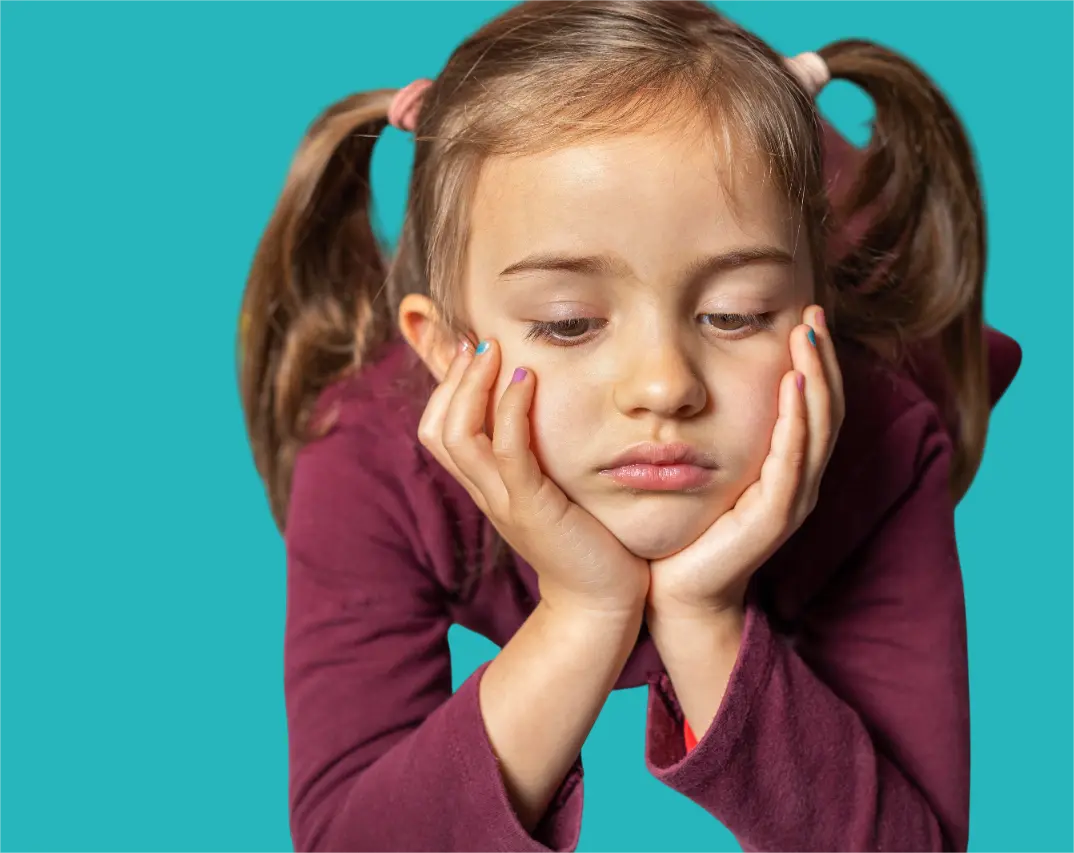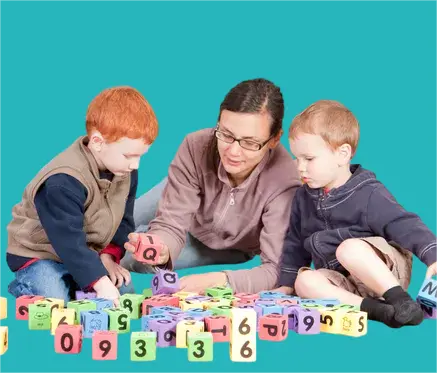Obsessive-compulsive disorder (OCD) is a mental disorder that can affect children and significantly impact their daily lives, social behavior, and emotional well-being.
Afflicted children suffer from recurring thoughts that cause anxiety. Early detection of this condition is crucial for providing appropriate treatment.
What is OCD in Children?
It is a mental disorder characterized by disturbing, recurring thoughts, i.e., obsessions that drive the child to engage in repetitive behaviors and compulsive actions in an attempt to relieve the anxiety caused by these thoughts. Although the child sometimes realizes that these actions are illogical, they feel compelled to perform them to feel reassured.
Causes of OCD in Children

There are no clear causes of OCD, but several factors may contribute to its development, including:
- Genetic factors, i.e., a family history of the disease.
- Imbalances in brain chemistry, especially serotonin.
- Environmental factors, such as family stress and academic or psychological pressure.
- Autoimmune infections: Some studies link bacterial infections to the onset of obsessive-compulsive symptoms.
Symptoms that indicate a child has OCD
There are several symptoms that indicate a child has OCD, including:
- Fear of contamination or germs, leading to frequent handwashing.
- Constant doubt, such as checking that a door is locked multiple times.
- Constant tension and anxiety, leading to headaches and muscle pain.
- Organizing things meticulously, such as rearranging tools to make them look perfect.
- Difficulty concentrating.
How is OCD diagnosed?
OCD is diagnosed by a specialist psychiatrist through:
- An interview with the doctor to ask several questions about the child's thoughts and behaviors.
- Memory, attention, and concentration assessment.
- Prefrontal cortex (PC) scan tests.
- Evaluation of the child's social and cognitive abilities.
- Physical examinations to rule out similar conditions, such as vitamin B12 deficiency and thyroid problems.
Complications in Children Due to Infection
There are several complications that may appear in a child due to OCD, including:
- Depression.
- Social isolation.
- Relationship difficulties.
- Addiction to certain behaviors.
- Poor academic performance.
- Negative impact on physical health, such as hand wounds resulting from frequent hand washing.
Medications Used to Treat OCD
There are many medications used for treatment, such as:
- Serotonin reuptake inhibitors such as fluoxetine and cetraline.
- Antipsychotics as adjunctive therapy in some cases.
- Antidepressants such as clomipramine.
Very Important Warning: Please do not take any medication without consulting a specialist psychiatrist.
Treatments for Treating OCD

There are several methods used to treat a child with OCD, including:
- Medication under the supervision of a specialist psychiatrist.
- Cognitive behavioral therapy (CBT).
- Family therapy helps family members support the child.
- Treatment with magnetic stimulation or surgery in severe cases.
Is it completely preventable?
Obsessive-compulsive disorder (OCD) cannot be completely prevented, but some things can help reduce the risk, including:
- Dealing with stress properly.
- Early treatment of psychological trauma.
- Maintaining a balanced lifestyle.
- Consulting a specialist when early symptoms are noticed.
Does OCD affect a child's life?
Yes, OCD significantly impacts a child's life, as it impacts academic performance, causes social isolation, and creates feelings of shame and embarrassment due to their unusual behavior.
The Role of Parents in Supporting a Child with OCD
Parents should observe changes in their child's behavior to treat them appropriately. They should not ridicule their behavior and seek professional help early. They should also provide emotional support for the child.
What is the difference between OCD and normal anxiety?
Obsessive-compulsive disorder (OCD) involves recurring obsessions and compulsions and significantly impacts daily life. Treatment requires the intervention of a specialist.
While normal anxiety is a feeling of anxiety without specific obsessions, it often does not interfere with daily life and may not require specialist treatment.
Article Summary
Obsessive-compulsive disorder (OCD) is a common but treatable mental health disorder characterized by obsessive thoughts and compulsive behaviors. Its causes vary between genetics and environmental factors. Symptoms require accurate diagnosis and therapeutic intervention, as it can impact children's daily lives, hinder their academic performance, and hinder their relationships with friends and family.
Early psychological and family support are the first steps toward recovery due to their significant impact on improving a child's condition.